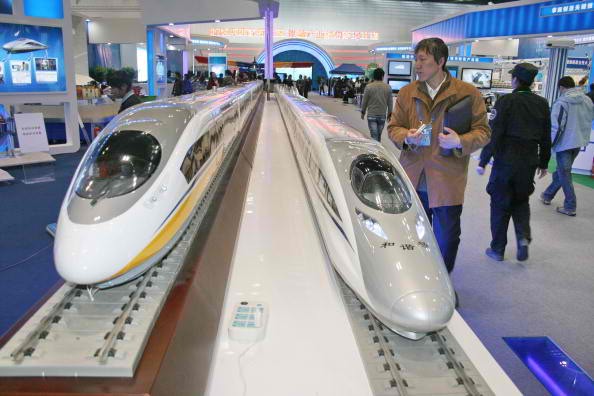China and Japan, two of the world's largest railway powers, are set to engage in another bidding scuffle for railway projects in Thailand and Malaysia, to enable both countries to enjoy the benefits of regional connectivity.
Thai transport minister Arkhom Termpittayapaisiht confirmed to the Nikkei Asian Review that he will meet with his counterpart from Malaysia regarding the issue, saying that the project can employ either a "China or Japan" or "China and Japan" scheme.
The project, which seeks to connect Bangkok and Kuala Lumpur by rail, is part of an impending proposal before the Association of Southeast Asian Nations (ASEAN) by former Malaysian Prime Minister Mahathir Mohamad involving a pan-Asian network of railways.
The regional network plans to connect Singapore from the south to the southern Chinese city of Kunming in the north, passing through major cities in ASEAN countries in the Asian mainland in the process: Malaysia, Thailand, Myanmar, Cambodia, Vietnam and Laos.
Much of the existing railways connecting ASEAN countries are in dire need of repairs for suitability to high-speed rail travel, as both China and Japan plan to export their bullet train technologies to promote regional mobility of people and goods, with sustained economic growth being the consequence.
China's push to export its railway technology is a key component of its "Belt and Road Initiative"--a large-scale plan pushed by Chinese President Xi Jinping to cultivate economic productivity between Asia and Europe through increased connectivity and mobility.
Yet, with Japan enthusiastically exporting its "Shinkansen" technology overseas--Taiwan currently uses it for its high-speed rail line, while both India and Thailand have entered agreements to use it--China faces formidable competition to its efforts.
Nonetheless, Japan faces criticisms for the sheer expense needed to get Shinkansen projects up and running overseas, with Arkhom urging the Japanese to compromise on other standards besides safety since Thailand is "not as rich as the Japanese."
China, however, has its fair share of issues regarding the project. Arkhom noted that the Chinese are requesting for development rights along the route designated for the railway, as well as concession rights for other railway projects in Thailand in case the project collapses.



























